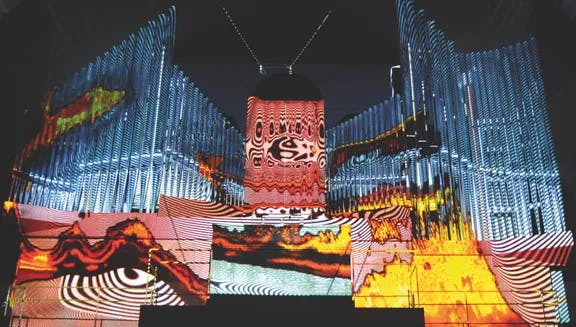
Art and culture in Bos en Lommer & De Baarsjes
No Man's Art Gallery
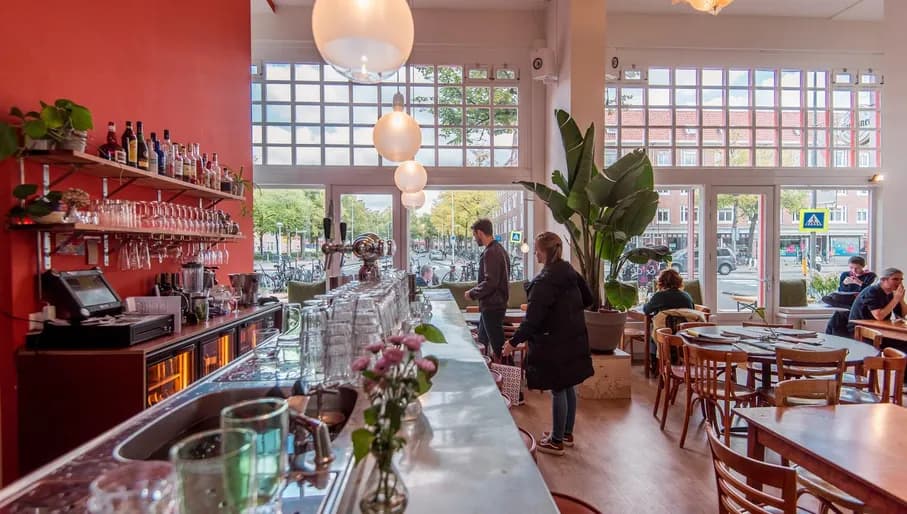
No Man's Art Gallery has grown from its daring beginnings as a pop-up in 2011 into a popular haven for creatives in Amsterdam’s West. This dynamic venue supports up-and-coming international artists, and boasts regularly changing exhibitions that keep you coming back. At the stylish restaurant and bar just beyond the gallery’s walls, you can enjoy an international menu that reflects its global art influences. A nexus of art and hospitality, No Man’s is an elegant but understated nod to the interconnectedness of culture. With pop-ups in places like Shanghai and Mexico City, No Man's Art Gallery reaches beyond city borders and fosters cultural relationships all over the world. With two permanent sites and a flair for the avant-garde, No Man’s truly has a talent for keeping its finger on the cultural pulse.
MAQAM
The word maqam in Arabic denotes both a place and a melody, and this creative convergence couldn’t be more accurate to describe this newest addition to Amsterdam West. Maqam is an eclectic cultural platform in Bos en Lommer that celebrates the neighbourhood’s unique creative spirit. Hosting events such as live music, theater, dance, as well as community seminars and workshops, Maqam gives both up-and-coming and renowned musicians a stage by fusing local voices with international influences. Attend a free guitar masterclass or visit a photography exhibition that honours local football talent at this diverse and exciting venue.
Podium Mozaiek
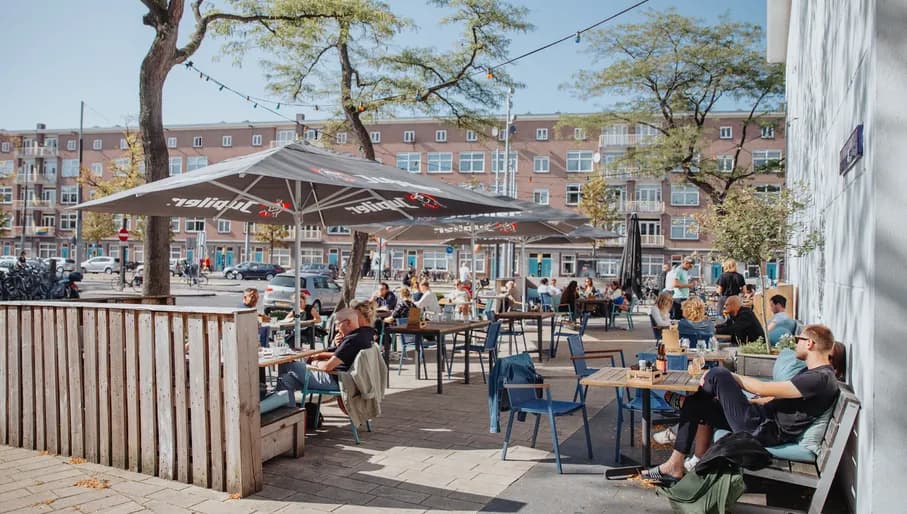
Cultural hub Podium Mozaiek not only typifies Dutch creativity in the repurposing of its spaces, but also the creative and collaborative spirit that animates the Bos en Lommer neighbourhood. In 2004, the Pnielkerk, a mid-century Protestant church complete with impressive mosaic windows and a patterned façade, was converted into a cultural theatre. Now known as Podium Mozaiek, this venue hosts theatre performances, music events and popular festivals like the recurring Amsterdam Storytelling Festival. Beyond the stage, there’s also its café-restaurant that boasts an international menu, including its beloved Turkish brunch, which consists of mezze and endless refills of tea.
Galeria Mercatorplein
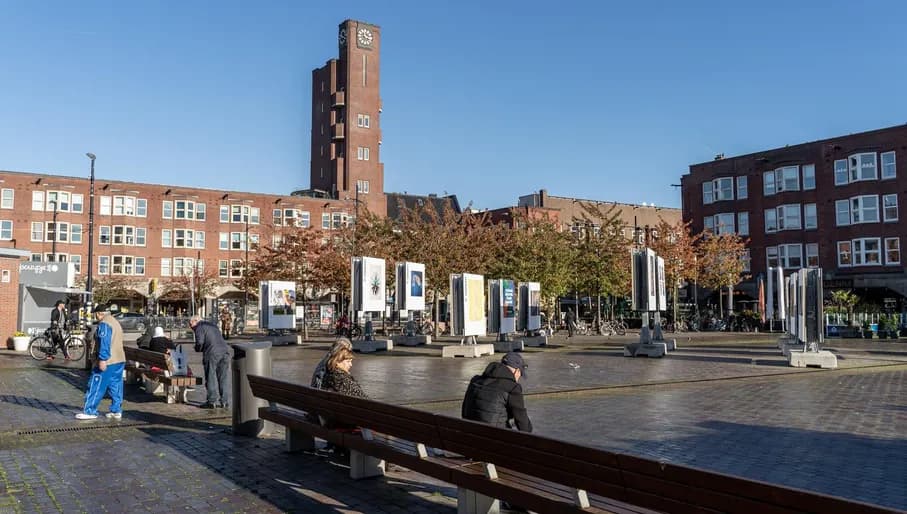
An inventive transformation of the art gallery experience, Galeria Mercatorplein uses the striking architecture of the Mercatorplein in the centre of the De Baarsjes neighbourhood as the backdrop for its exhibitions. This open air gallery, in collaboration with both the city council and Foam, Amsterdam’s photography museum, turns the famous square into a photography exhibit that centers on and around the local community. When an exhibition is on, Galeria Mercatorplein showcases towering photographic installations that invite visitors to explore at their leisure. Offering a poignant window into the world of their subjects, these images blend personal narratives with universally resonant themes.
MidWest
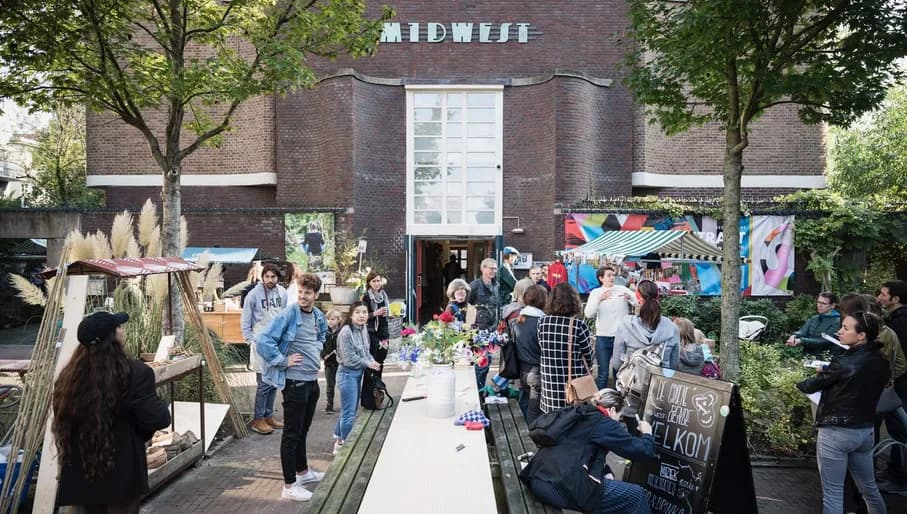
Once a school, MidWest is now a community-oriented cultural centre built with the red brick flair of the Amsterdam School. Nowadays, it keeps its spirit of learning and enrichment alive by hosting art exhibitions, film screenings, performances and workshops, all while emphasising sustainability and social responsibility. Also on its agenda are special events like philosophy dinners, where participants are encouraged to discuss profound questions and share their insights in thoughtful debate, and the recurring grief cafe, where locals are welcome to share their experiences of loss.
ZID Theatre
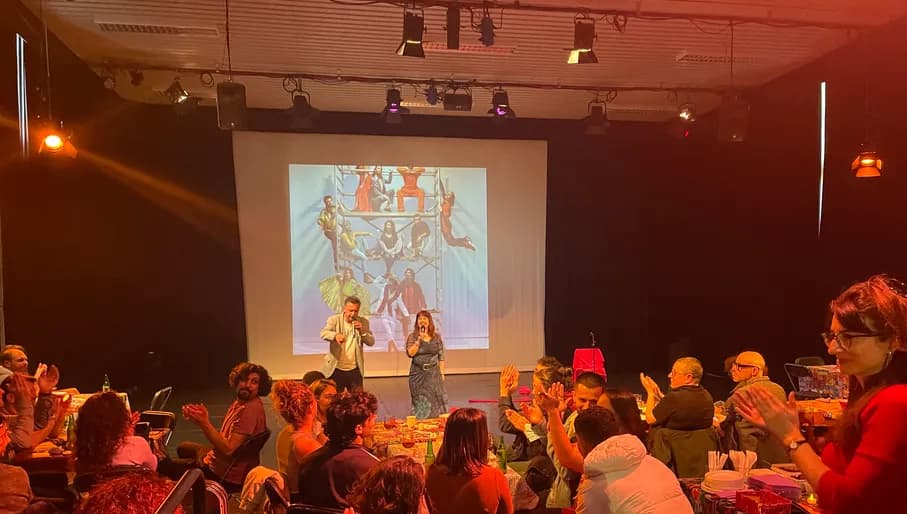
Rooted in Amsterdam’s spirit of rebellion and reinvention, ZID Theatre is a creative centre that focuses on experimentation and the breaking of artistic boundaries. Its dynamic programming features anything from avant-garde theatre and experimental music to trailblazing dance that sweeps across genres, with the annual ExploreZ festival as a true culmination of this experimental ethos. Spotlighting fearless artists who are innovating in their respective fields, this festival provides a platform for up-and-coming talent from Amsterdam’s creative scene. In addition to this, ZID is also committed to championing local voices by offering workshops and forging partnerships that empower artists to tell their stories in the community.
Keith Haring mural
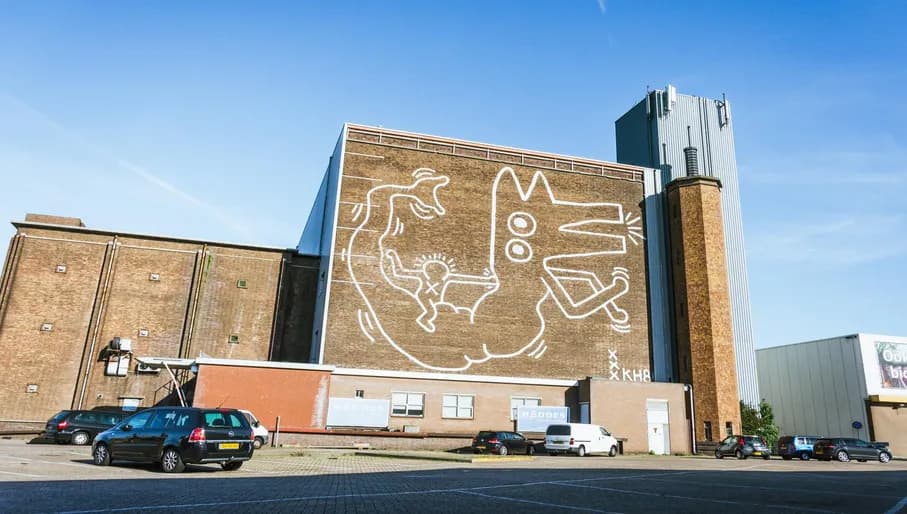
Towering over the parking lot at Willem de Zwijgerlaan on Karel Doormanstraat, this 15-meter-wide mural by the legendary artist Keith Haring is hard to miss. But it wasn’t always that way – for years it was hidden behind a dull aluminimum wall. It was only due to initiative by local fans of Haring’s work that the mural was lovingly restored and unveiled to the public in 2018. Painted with his unmistakable flair and energy, the mural was completed during Haring’s visit for his Stedelijk Museum exhibition in 1986. One of the few Haring murals that still exist, this urban artwork perfectly captures his bold and playful style.
Het Sieraad
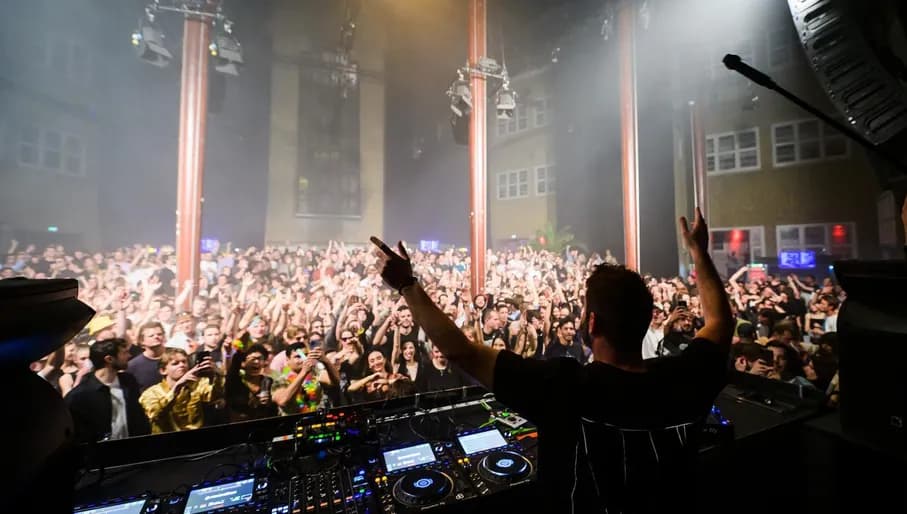
Over a century ago, Het Sieraad was a trade school that taught carpentry, mechanics, and metalworking. Today, it’s an unmissable part of Amsterdam’s nightlife scene, with a program that features international artists like Dom Dolla and Secret Cinema. In addition to its night-time offerings, it also functions as a popular conference venue. With a rounded canal-front façade and an expansive atrium topped with a glass roof, Het Sieraad is a truly iconic space that offers weather-proof parties all year round. Here, the craftsmanship of the past meets the city’s fun effervescent present.
Erasmuspark Festivals
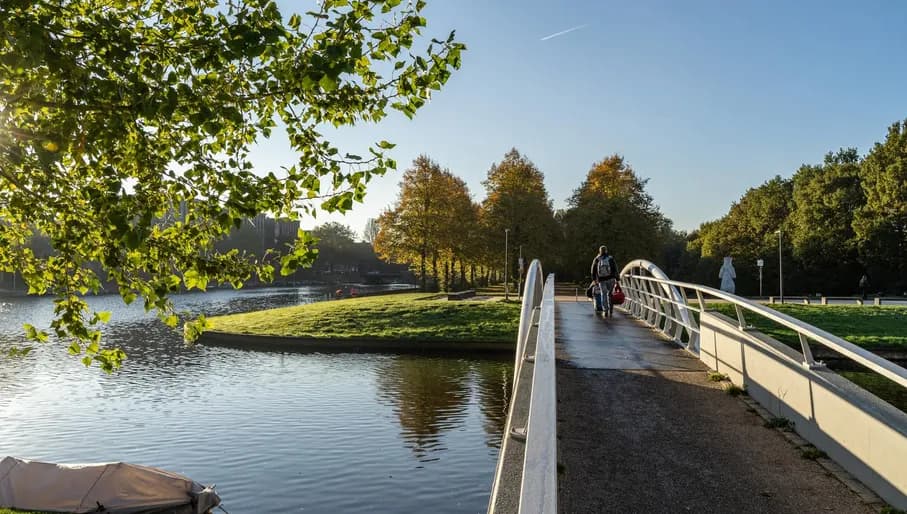
Several times a year, the quiet leafy sprawl of the Erasmuspark is transformed into a cultural convergence of theatre, music and performance for events like Circusbende Festival, an eclectic circus performance, and Wilde Woorden, a spoken word festival that infuses the everyday with the poetic. Another highlight in the park’s calendar is the Huiskamer Festival (the Living Room Festival) which features an exciting lineup of cabaret performers that are ready to deliver sharp wit and hilarious commentary under the shade of Erasmuspark’s majestic oak trees.
The Amsterdamse School
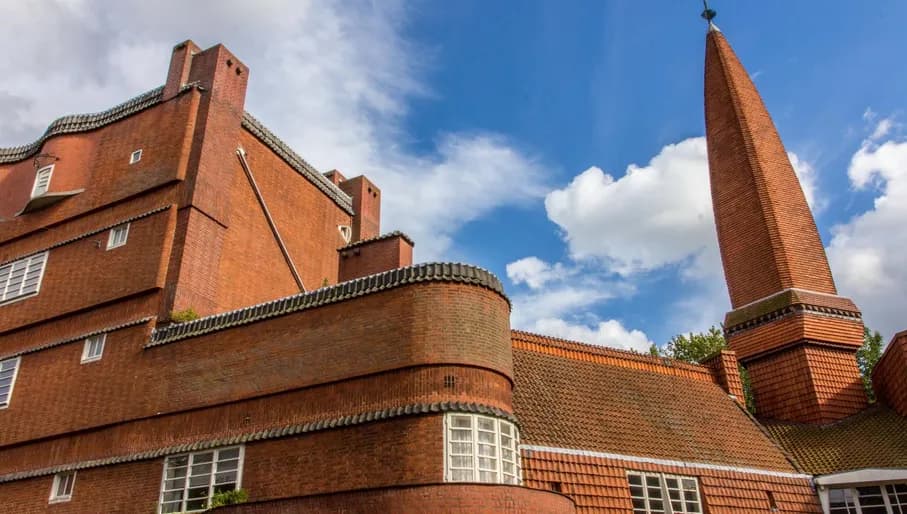
Bos en Lommer and De Baarsjes experienced an architecture explosion in the early 20th century, when these areas were completely transformed by the rise of the Amsterdam School style. An architectural tradition known for its socialist idealism, distinctive brickwork and playful motifs, and spearheaded by architect H. P. Berlage, the Amsterdam School was the Dutch answer to the art deco and classical moderne styles that were springing up across continental Europe. Amsterdam's neighbourhoods are populated with buildings in this style, but some highlights are to be found in Bos en Lommer and De Baarsjes. Check out the Jeruzalemkerk with its unmistakable Amsterdam School-style facade, or wander around the unique curved front of Het Sieraad.
Related articles
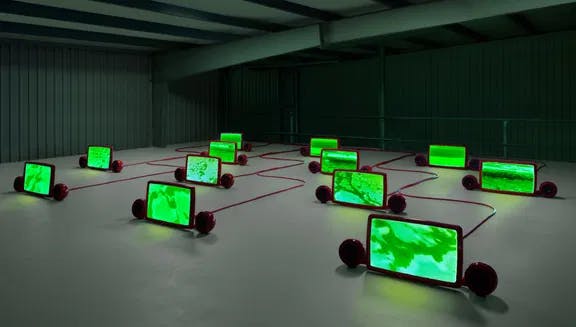
Art and culture in NDSM
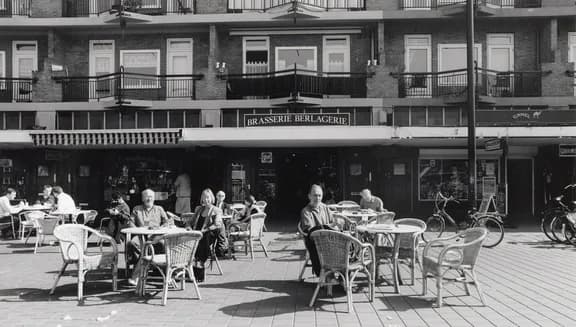
Bos en Lommer & De Baarsjes then and now
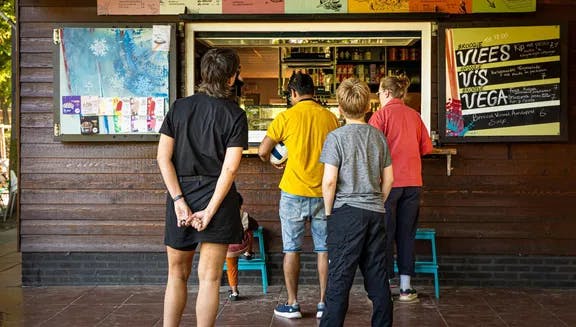
Family and kids in Bos en Lommer & De Baarsjes

Nature and active in Bos en Lommer & De Baarsjes
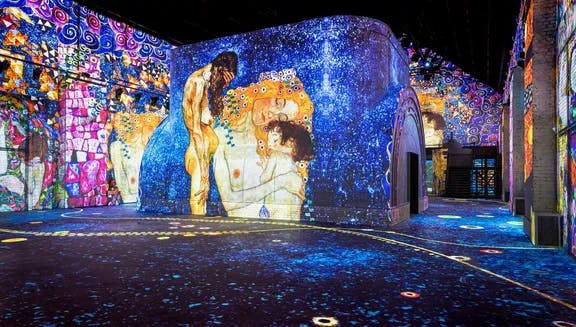
Art and culture in Westerpark

Art and culture in De Pijp
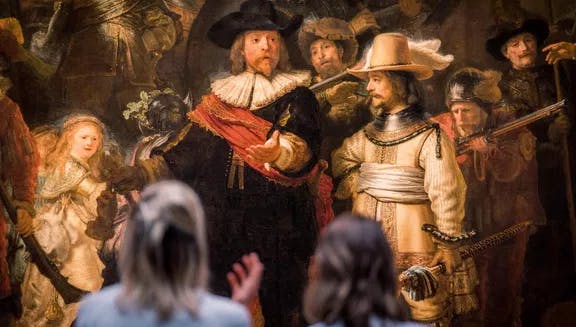
Art and culture in Oud-Zuid
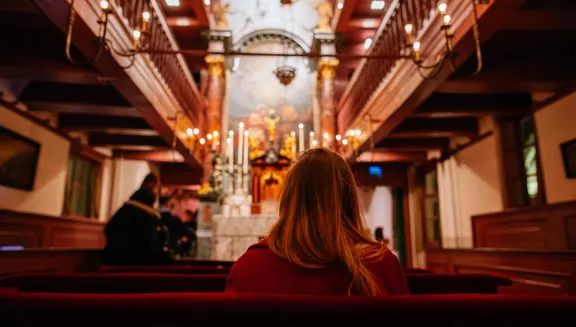
Art and culture in Amsterdam City Centre
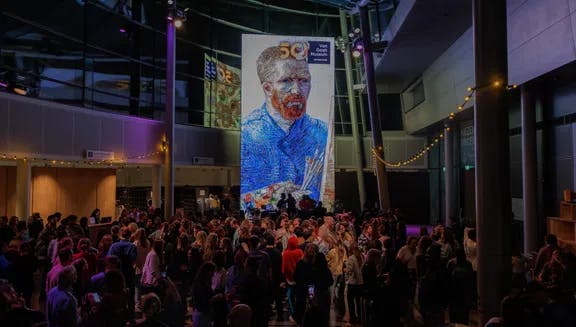
Art after dark: late-opening museums in Amsterdam
